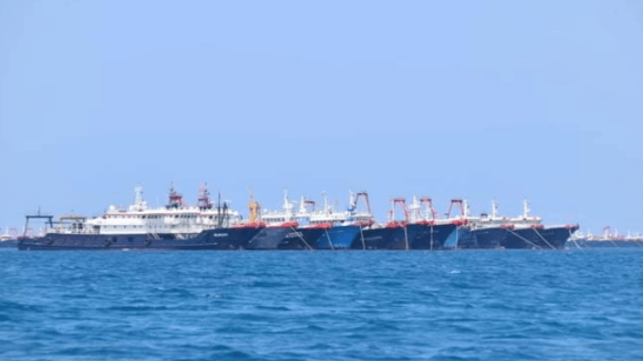Marcos: China is Moving Ever Closer to Philippine Shores

Philippine President Ferdinand Marcos Jr. told the press Sunday that China's maritime pressure is shifting closer to the nation's home islands as tensions in the Spratly Islands continue to build. He warned that "the situation has become more dire" and that it is not improving.
"The nearest reefs that the PLA have started to show interest in - in terms of using these atolls as a basis for building bases - have come closer and closer to the Philippine coastline," he said, speaking at a panel at the Daniel K. Inouye Asia-Pacific Center for Security Studies, a Defense Department think tank in Honolulu. "The nearest one is now 60 nautical miles from the nearest Philippine coast."
In an address, Marcos described the ongoing standoffs with Chinese forces at Second Thomas Shoal, and the environmental damage wrought by China's extralegal activities in the Philippine exclusive economic zone. "dThere is rampant illegal, unreported, and unregulated (IUU) fishing, and militarization of reclaimed features in the South China Sea. There have been recent missions to Escoda (Sabina) and Romulo (Iroquois) Reef which revealed a direct correlation between the presence of maritime militia vessels and reef damage in those features. If only for that, the impact on biodiversity and the environment are— I’m afraid are assessed as possibly already irreversible," he said.

that matters most
Get the latest maritime news delivered to your inbox daily.
Marcos also stopped off to visit the U.S. military's Indo-Pacific Command in Pearl Harbor. He noted that the U.S. is the Philippines' oldest security partner, dating back more than 100 years (including the colonial period). That security partnership is as relevant as ever: The White House backs up Philippine maritime sovereignty claims by invoking the Philippine-U.S. mutual defense treaty, which obligates American forces to respond to an attack on the Philippines.
Indo-Pacific Command welcomed Marcos, and in a statement, it emphasized that it is committed to "responding to contingencies, deterring aggression and, when necessary, fighting to win."
